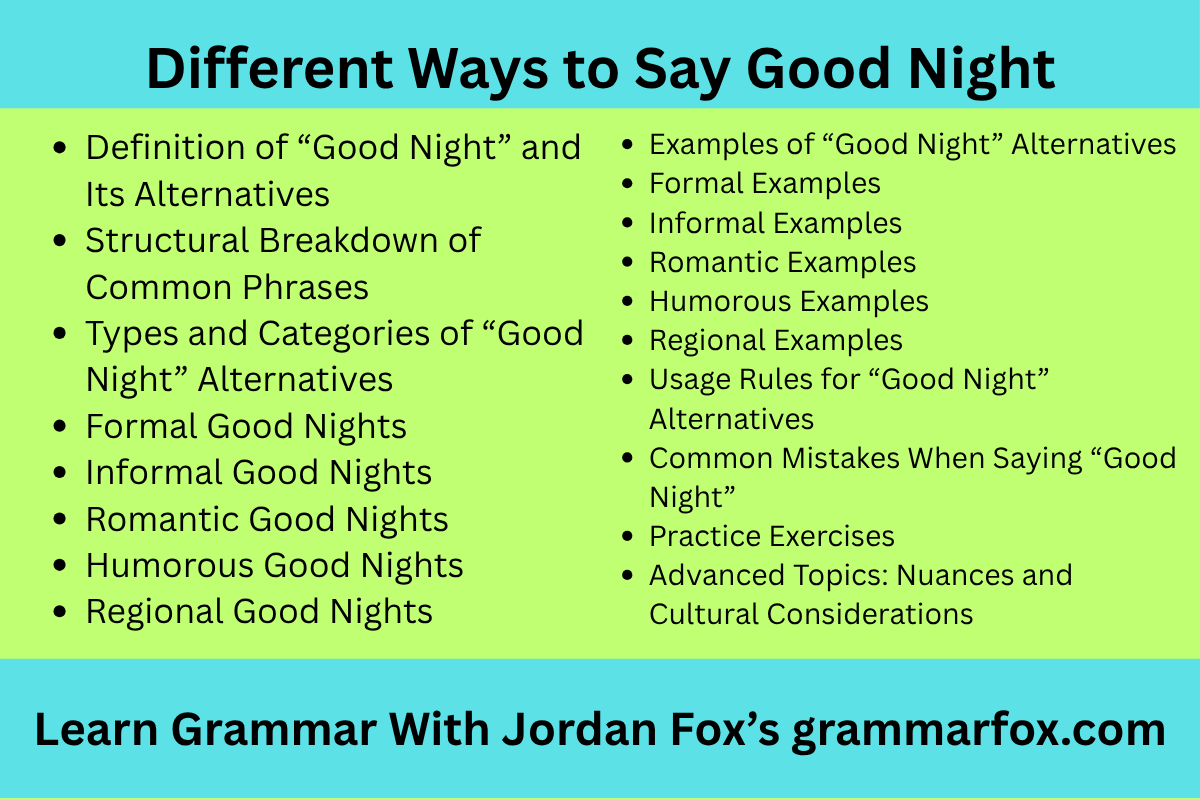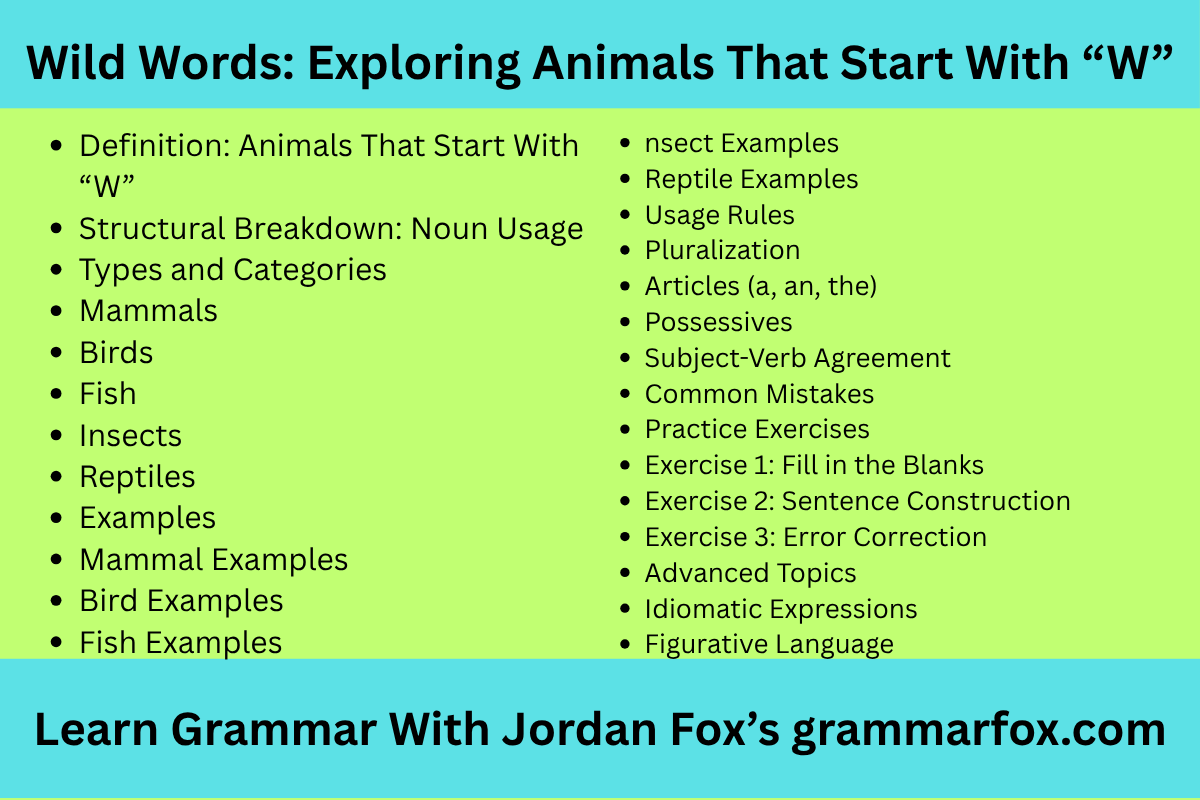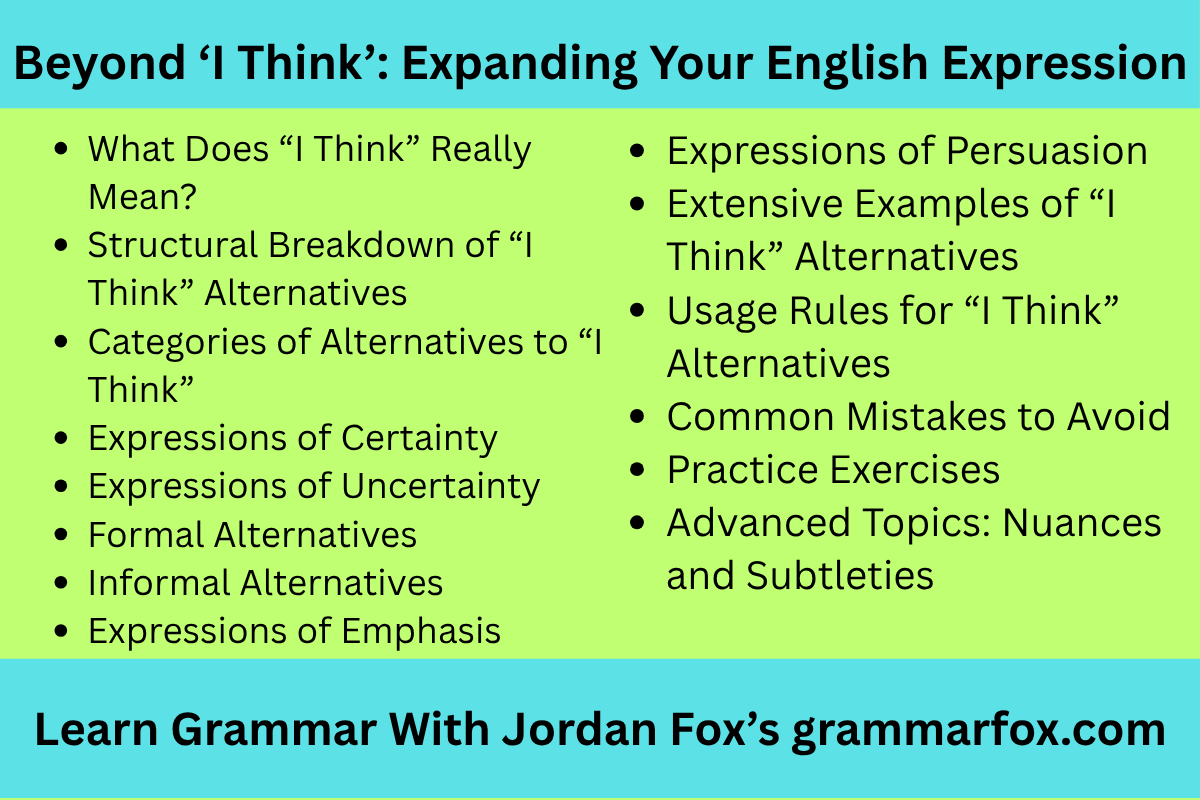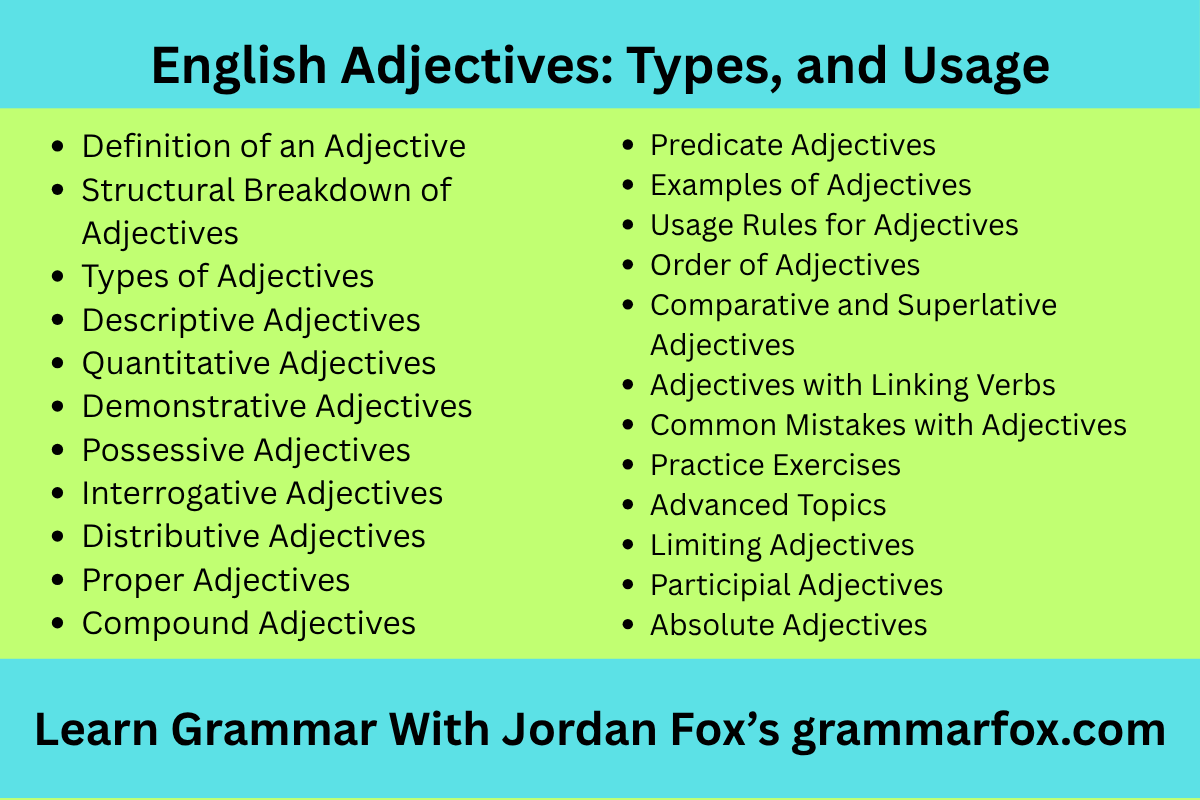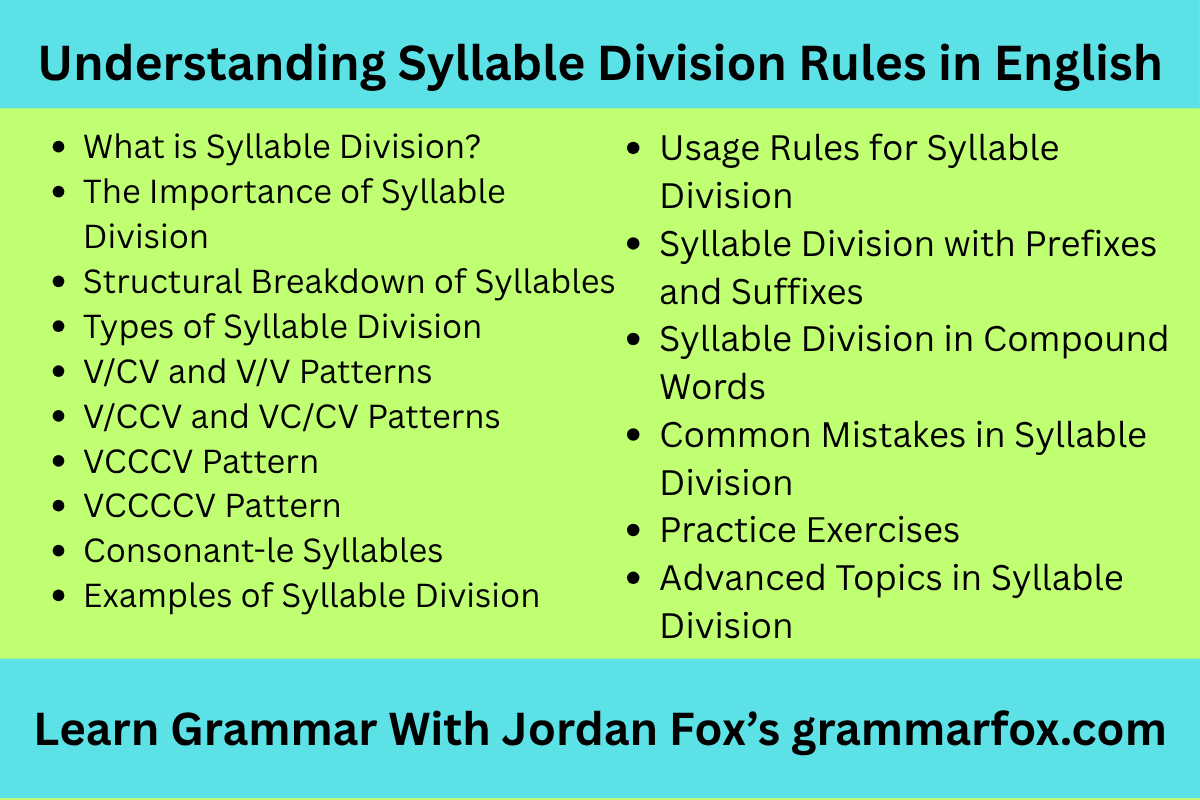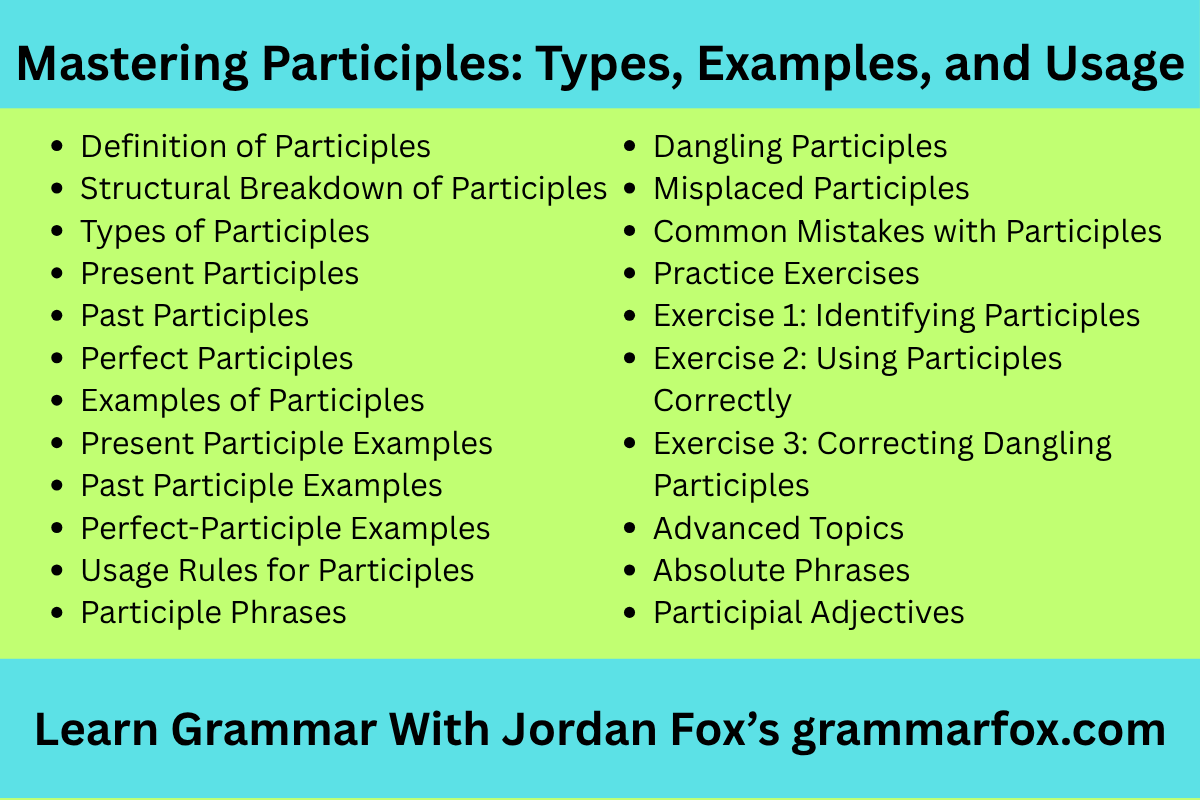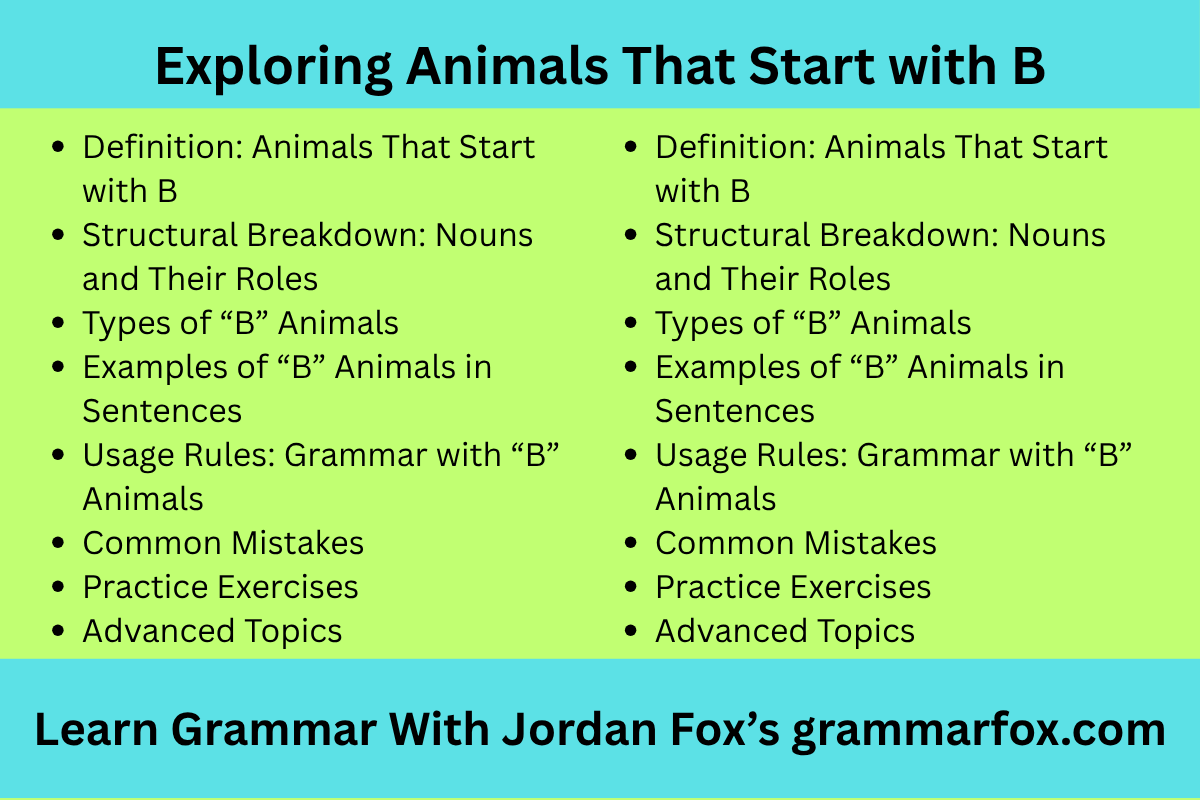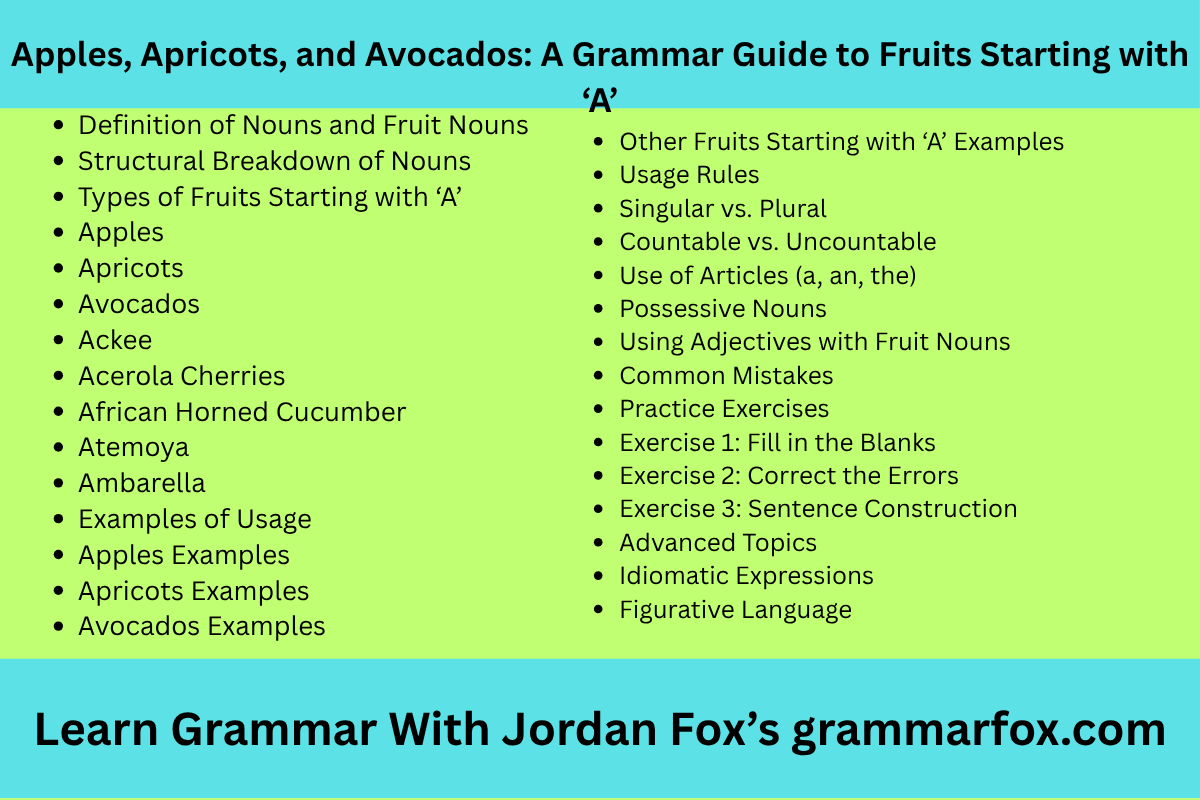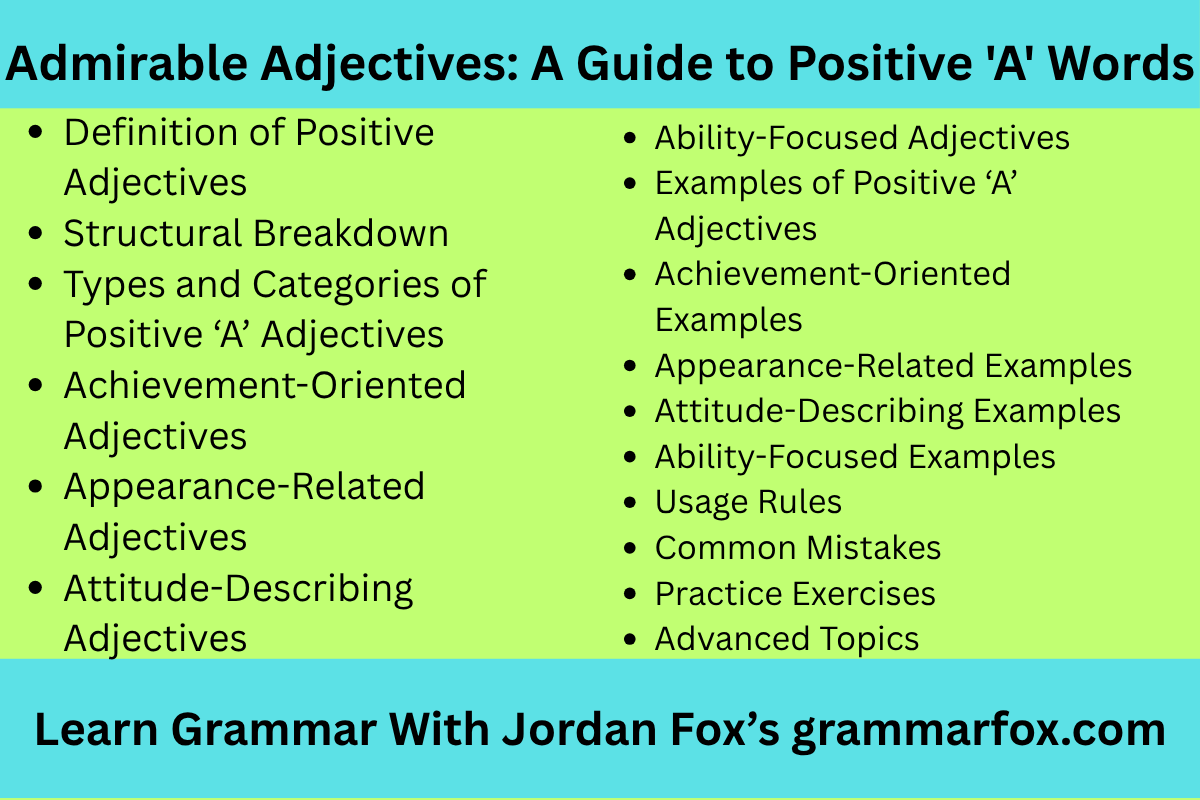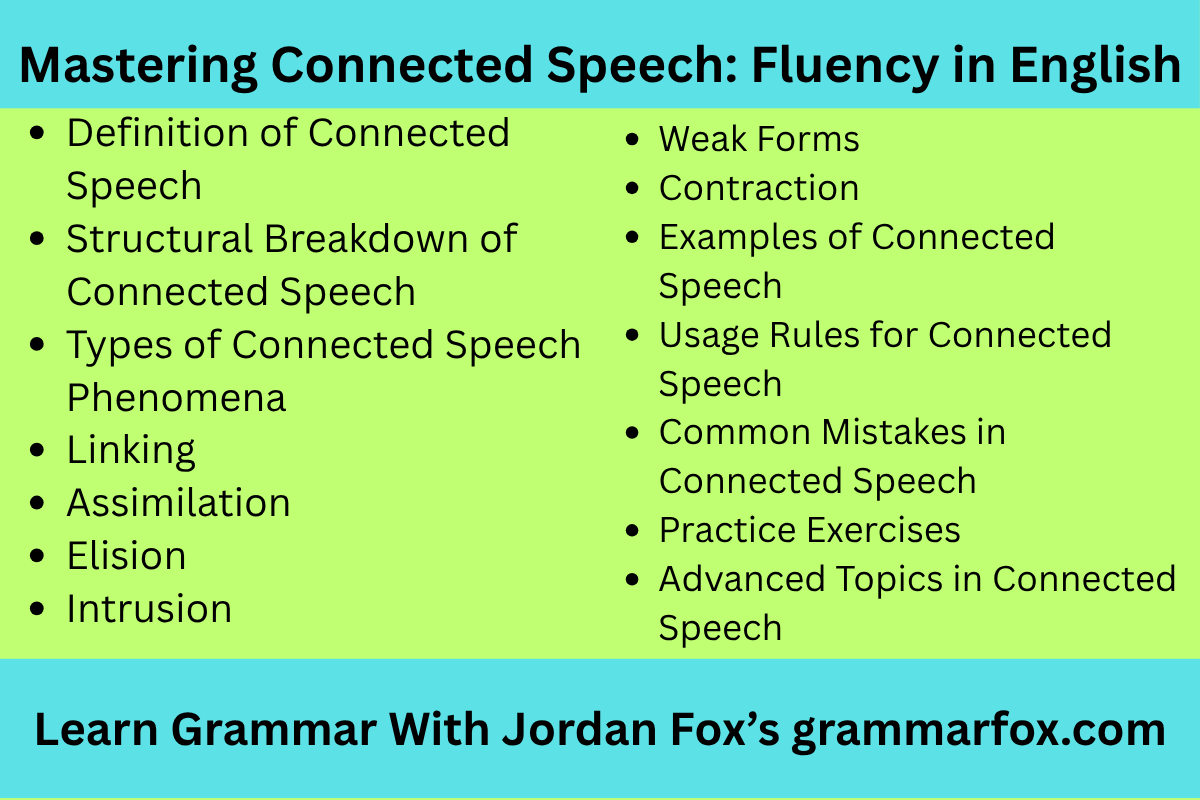Different Ways to Say Good Night: A Comprehensive Guide
As your grammar guide, I’m here to help you go beyond the basics. Sure, “good night” is a classic way to end the day—but wouldn’t it be great to have a few more options in your back pocket? Whether you’re texting a friend, saying goodbye to a colleague, or tucking someone in, there’s a perfect … Read more

